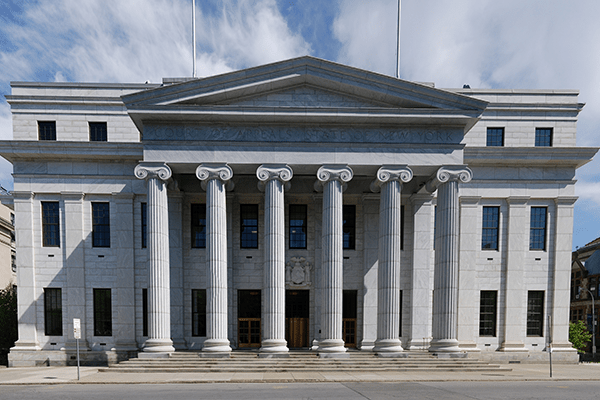|
RCBJ-Audible (Listen For Free)
|
7-0 Decision To Uphold Appellate Court Decision; Hoehmann Will Run On Ballot In June Primary
ANALYSIS
By Tina Traster
The issue is settled – Supervisor George Hoehmann can run for another term because the term limits law needed a public referendum to have been properly adopted in 2014.
In a unanimous 7-0 decision, the New York Court of Appeals affirmed the appellate court’s decision to overturn Rockland County Supreme Court’s earlier decisions upholding term limits in the Town of Clarkstown.
New York’s highest court, like the appeals court, relied on the notion that the law Clarkstown passed in 2014, which would have set an eight-year term limit for Clarkstown elected officials and required a supermajority vote by town council, was never properly passed because such laws must be put to the voters to decide through a referendum.
Attorney Daniel Szalkiewicz, who was representing intervenors Councilmembers Patrick Carroll and Frank Borelli, had argued successfully before Rockland County Supreme Court Justice Amy Puerto that a challenge to the term limits law was time-barred by a four-month or six-year statute of limitations. However, the hole in the theory boiled down to the law’s validity. The merits of the argument – that the law was flawed because it had not been subjected to a referendum – were never ruled on in the lower court.
Subsequently the Second Department overturned that decision and the Court of Appeals affirmed.
“[A] local law shall be subject to mandatory referendum if it . . . [a]bolishes, transfers or curtails any power of an elective officer,” the court wrote in an opinion issued Friday. Through the referendum process, such local laws must be “submitted for the approval of the electors” at a general or special election and “shall become operative as prescribed therein only if approved at such election by the affirmative vote of a majority of the qualified electors of such local government voting upon the proposition.”
In other words, the term limits law was never adopted, nor was it ever repealed by the 3-2 vote that the Town of Clarkstown took in January to overturn it.
So what happens next? And what about a town referendum on a law that is still technically awaiting such a vote?
The Court of Appeal said, “Here, it was not disputed below that the Town Board was required to submit Local Law No. 9-2014 to a mandatory referendum. No such referendum was held. Therefore, the law lacks operative effect until presented to and approved by the voters.”
Can the law still become operative through a referendum? The Town Board had an obligation to hold that referendum – it was mandatory. Does that obligation carry forward to the current Town Board?
This is the question that’s not settled.
Hoehmann will face Rockland County Republican Chair Lawrence Garvey, who also works part-time for Rockland Green and also maintains a private law practice, in the June 27th primary. The presumptive Democratic candidate will be Justin Sweet, the town clerk.

















